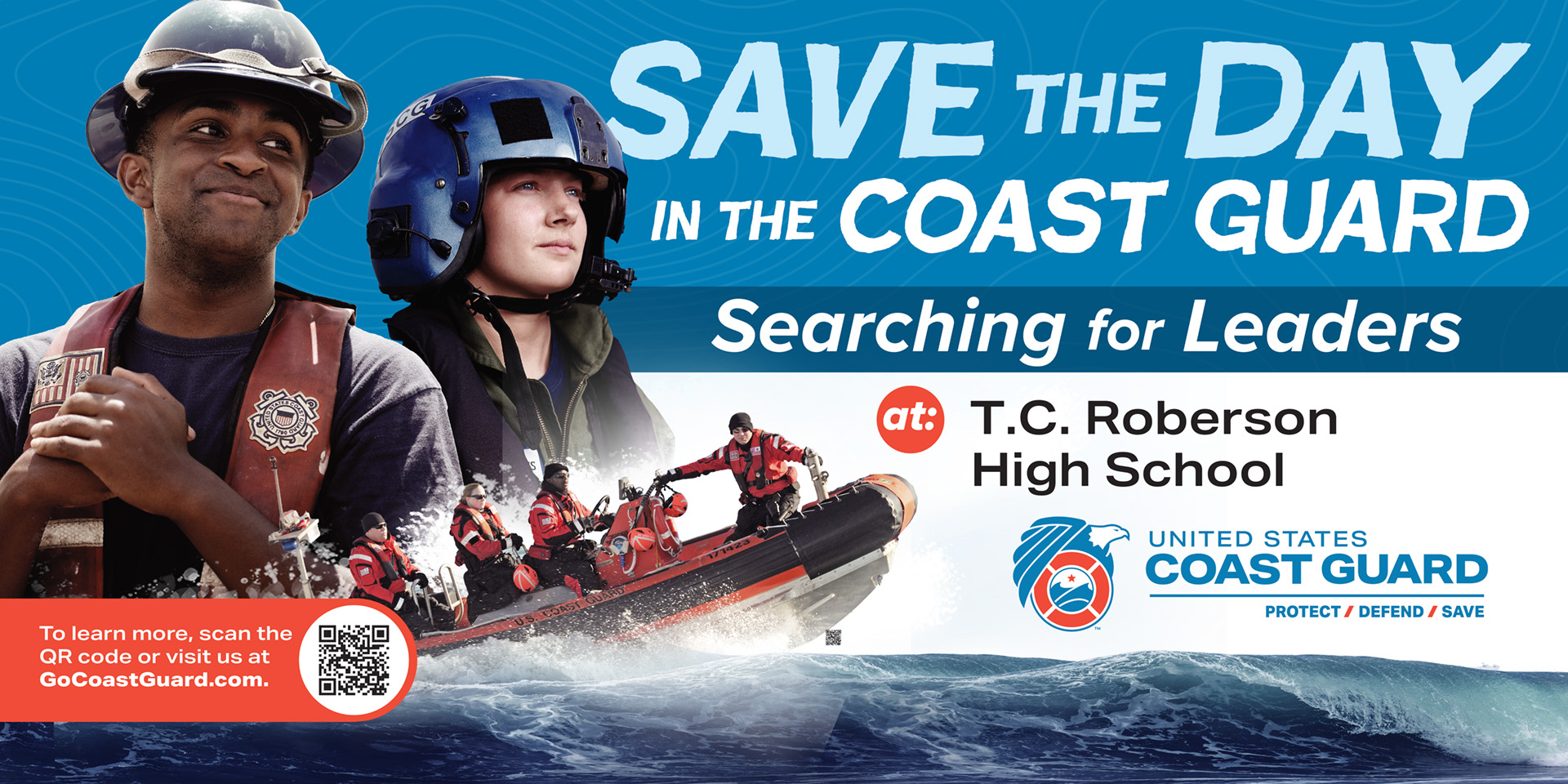
CSC Andrew Rupp has served in the U.S. Coast Guard for 19 years and has found that there are multiple paths people travel to reach a career in the Coast Guard.
“I joined for direction in life and no immediate need to continue to college without a goal. I was drawn to the Coast Guard because of its unique mission of maritime safety, security, and stewardship,” Rupp said. “[But] personal experiences, family tradition, and a sense of duty can all play a role in someone’s decision to join the Coast Guard.”
Rupp recently visited T.C. Roberson High School in Asheville, N.C., to share his experiences in the Coast Guard and discuss the benefits and opportunities of a career in the military.
The Coast Guard and most branches of the military have faced challenges with increasing the number of young adults who choose to enlist. “One major challenge is competition with other career options available to young individuals, ranging from higher education to private sector jobs, Rupp said. “Additionally, misconceptions about military service, lack of awareness about the Coast Guard’s mission and opportunities, and concerns about the demands and lifestyle associated with military life can all deter potential recruits.”
One common misconception about the Coast Guard is that it primarily focuses on maritime search and rescue operations.
“While search and rescue is a critical aspect of its mission, the Coast Guard is also involved in a wide range of other activities, including maritime law enforcement, environmental protection, port security, icebreaking, and humanitarian assistance,” he said.
Rupp met with 9th-12th grade students from the school’s track, football, volleyball, and basketball teams through a leadership program facilitated by DistrictWON, a U.S. Coast Guard partner for marketing and local engagement.
Partnerships with high schools can be invaluable in terms of helping students explore their career options after graduation.
“By collaborating with high schools, the Coast Guard can increase visibility and awareness among young people about the opportunities available in the service,” Rupp said.
Edward Solomon, head track coach at T.C. Roberson, said the young men listening to Rupp’s presentation were surprised by the number of possibilities available through the Coast Guard, ranging from salaries to career options.
“The Coast Guard is not thought about and or compared to all the other branches of the military, though they have some similarities, the atmosphere is quite different,” he said. “[Our students] were given information about commitment and the options after high school and have the ability to acquire experience and still be able to go to college if need be.”
Solomon, who served in the U.S. Army right after high school, said that he would have given the Coast Guard a closer look if he had today’s information about service.
“[The] impact of Coast Guard service… varies from person to person,” Rupp said. “For some, it instills a strong sense of camaraderie and purpose, as they work alongside fellow service members to protect lives and the environment. It can also provide valuable skills and experiences that translate to civilian careers, whether in maritime industries or other fields. Additionally, serving in the Coast Guard can foster personal growth, resilience, and leadership qualities that last a lifetime.”
Rupp told students considering joining the Coast Guard after graduation who are still facing doubts to research the branch, talk openly with recruiters and mentors, evaluate goals and values, address concerns, and, above all, trust yourself.
“Remember that joining the Coast Guard is a significant commitment that offers unique opportunities for personal and professional growth,” he told the students. “By approaching the decision thoughtfully, seeking guidance, and staying true to yourself, you can make a choice that aligns with your goals and sets you on a fulfilling path forward.”
 Skip to content
Skip to content
